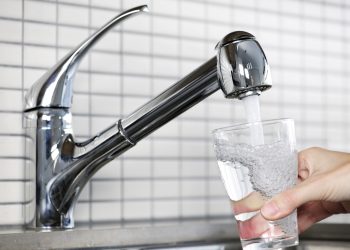
Most people relate pool injuries to drownings and although it is crucial that proper safety be enforced to prevent the risk of drownings, there is another aspect of pool safety that is often overlooked-injury from chemical exposure. The chemicals that are used to keep pools clean and clear, such as chlorine and muriatic acid are hazardous materials. These chemicals can produce toxic fumes that can cause choking, shortness of breath, and possible lung/respiratory damage as well as chemical burns on skin, eyes, and other organs. These chemicals can lead to extremely serious injuries and expensive medical bills. Unfortunately, accidents happen, so it’s important that you know what to do if you or a family member has experienced chlorine exposure or has been burned by pool chemicals, such as muriatic acid while swimming.
Exposure to Chlorine Pool Chemicals
Although breathing chlorine fumes may not be fatal, it can be extremely uncomfortable and may increase the symptoms of those with asthma or other respiratory problems. If you breathe in the fumes, it’s essential that you get fresh air immediately. Even if you are outdoors, keep in mind that chlorine fumes are heavy, so you’ll need to get away from the fumes. In some situations, simply standing up may make breathing easier. If the chlorine burn is in the nose, mouth, or eyes, it’s important to seek medical attention right away.
After handling the packaging as well as the chlorine tablets themselves, be sure to thoroughly wash your hands and do not rub your eyes or eye area. When adding chlorine to the pool, it can splash in your eyes, so consider wearing sunglasses or another type of eye protection. If the chlorine does splash into your eyes, rinse your eyes under low streaming water for at least 15 minutes. Make sure to pull your eyelids out to ensure there is complete irrigation of your eye. After rinsing, if you have blurry vision, irritation, or noticeable injury, seek medical attention.
The liquid chlorine that is a primary ingredient in pool shock or bleach can cause skin irritation, especially with long-term contact. If chlorine gets on your skin, rinse it with cold to warm water immediately and apply a moisturizing lotion to prevent your skin from drying out. A chlorine burn that looks like sunburn, which is a first-degree burn, and it should be treated like any other mild burn by applying a burn ointment and covering the area with clean, breathable bandaging. If the layers of skin are open and there are visible tissues, this is a third-degree burn, so you should go to the emergency room immediately. The most important thing to remember is that large burns almost always require immediate medical attention.
Exposure to Muriatic Acid
Muriatic acid is a diluted solution of hydrochloric acid that is often used to reduce high alkalinity and lower the PH in swimming pool water. The addition of muriatic acid to pool water can create a hot spot of acid that may potentially irritate or burn the skin, especially if you swim too early after it has been added. Muriatic acid contains hydrochloric acid, so even diluted muriatic acid may potentially cause injury. It can be extremely dangerous for humans because it causes caustic burns when coming in contact with your skin. The degree of the burn depends on the strength of the solution used and how long the skin was in contact with the solution. Not only is it dangerous for the skin, but it may also cause irreversible damage to your eyes. Muriatic acid can cause hazardous contamination through breathing, in your eyes or mouth, and on your skin. If you come in contact with muriatic acid, rinse the solution from your skin immediately, remove any contaminated clothing, and depending on the severity of the burn, you may need to seek medical attention. It’s recommended that you follow these instructions for a muriatic acid burn:
- Skin burns- Although rare, muriatic acid can trigger frostbit, kill skin tissue, or cause deep, ulcerated burns. Flush the affected area with water immediately for 15 minutes, but do not rub or apply soap. For prolonged exposure, seek medical attention.
- Eye burns-Exposure to muriatic acid in your eyes can cause burning, irritation, tearing, swelling, blurred vision, sensitivity to light, and possible blindness. If eyes are exposed to muriatic acid, flush with water for 15 minutes, making sure to lift eyelids for complete irrigation. If exposure causes symptoms that aren’t reduced through rinsing, seek medical attention immediately.
- Inhalation-If you have inhaled muriatic acid, seek fresh air immediately and monitoring your breathing. When muriatic acid is breathed in, it can cause coughing, congestion, and a burning sensation in your throat, but if symptoms do not clear or breathing is irregular, contact 9-1-1 or your medical provider right away.
- Ingestion-When swimming too soon after muriatic acid has been added to the pool water, it may lead to accidental ingestion. Swallowing muriatic (hydrochloric acid) will quickly cause extreme pain in your mouth, throat, chest, and abdomen. It can cause nausea and vomiting, so it’s important to drink large amounts of water or milk to help dilute the strength of the chemical; however, do not induce vomiting. You should contact the poison control center and seek medical advice immediately.
Knowing the potential hazards of the chemicals used in swimming pools and knowing what to do if you or someone you know has been exposed to a pool chemical will help you have peace of mind. If you have sustained a chemical burn from the chemicals used in a swimming pool, it’s essential that you treat the burn accordingly. Unfortunately, an injury from chemical exposure can lead to serious consequences and medical expenses, so if you have sustained a chemical burn, contact your personal injury attorney to learn more information about whether you may have an injury case against the owner of the swimming pool and/or the manufacturer of the product.







